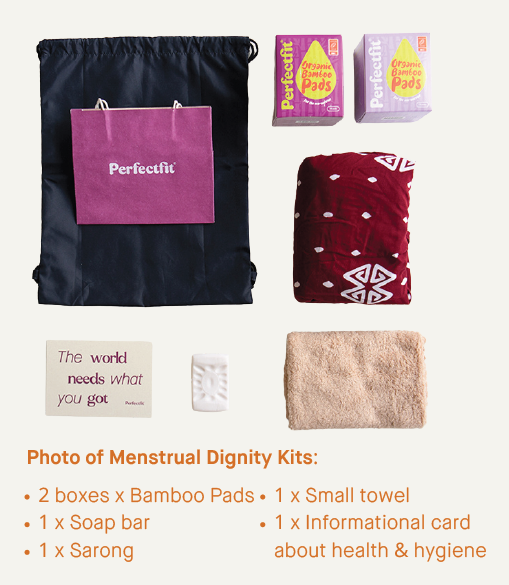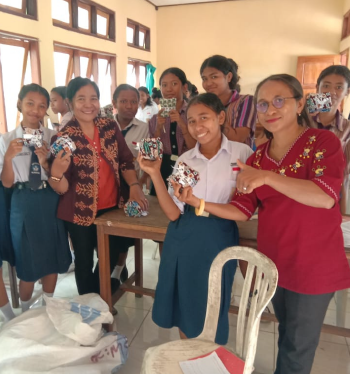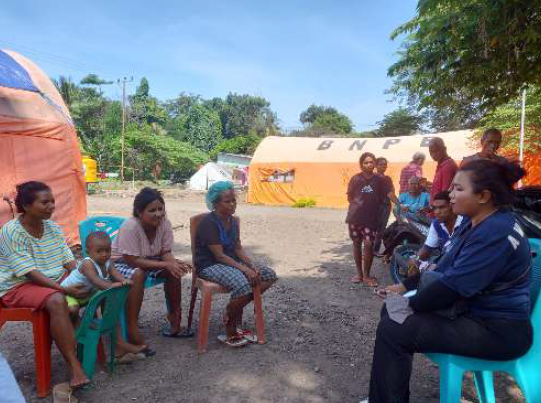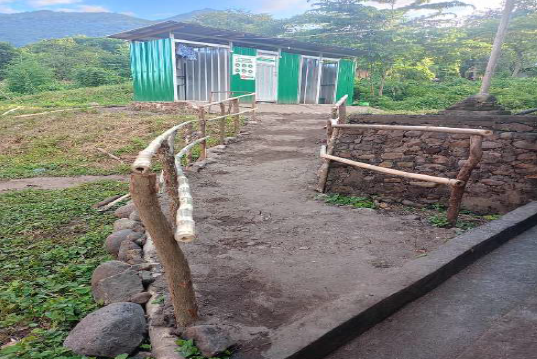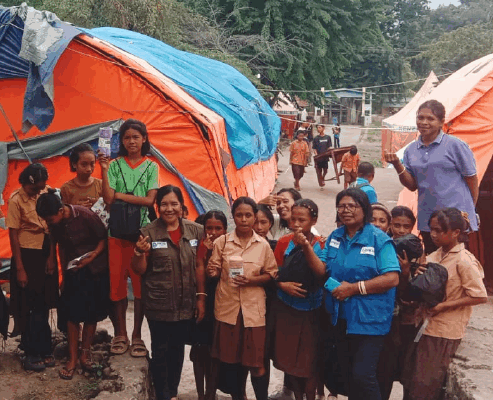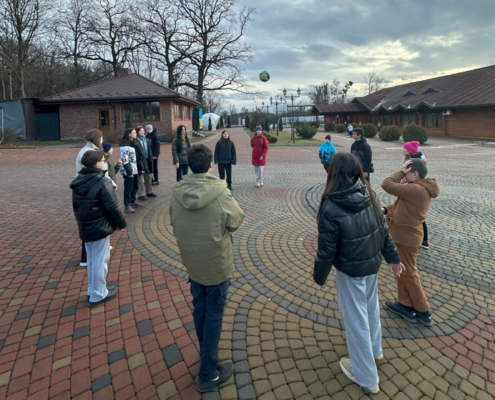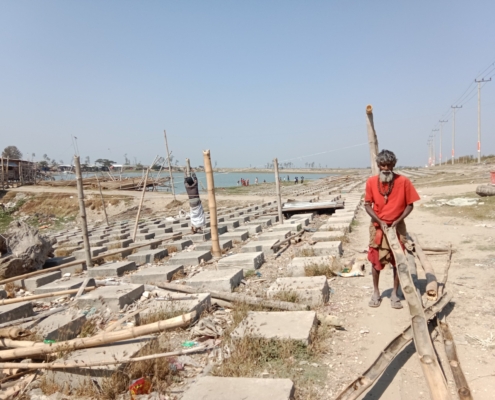Locally Led Recovery After the Mount Lewotobi Eruption
When Mount Lewotobi erupted in November 2024, it upended life for more than 11,000 people in East Flores, Indonesia forcing families from their homes and into temporary shelters. Among the displaced were women, children, people with disabilities, and elderly residents, those most at risk in a disaster, yet often the least visible in the response.
Thanks to support from the Palladium Humanitarian Relief Fund, two powerful, locally led initiatives stepped in to meet urgent and often overlooked needs showing what’s possible when disaster recovery is grounded in dignity, equity, and inclusion.
Perfectfit and Bali Children Foundation: Empowering Women Through Menstrual Health
In partnership with the Bali Children Foundation and local organisation PKBI East Flores, Indonesian social enterprise Perfectfit launched an initiative to distribute 1,000 Menstrual Dignity Kits to women and girls in four evacuation centres in Lewolaga, Konga, Kobasoma, and Bokang.
Each kit included reusable bamboo pads, a towel, soap, a sarong, and a health information card, offering not just hygiene but confidence and control during a time of upheaval.
Junior high school students in Konga receiving reusable pad kits.
Thanks to Palladium’s support, 650 kits were funded through the Humanitarian Relief Fund, with the remaining 350 covered through Perfectfit’s Buy 1 Give 1 program and other generous donors. The initiative is estimated to have diverted 20,000 single-use plastic pads from the environment.
To complement the distribution, education sessions were delivered to break stigma and equip girls with the knowledge to manage their health safely during emergencies.
This project met a critical but often overlooked need. Restoring dignity for women and girls in crisis, while also offering an environmentally responsible solution.
“Ibu, thank you so much, the pads were so soft and comfortable,” one young girl shared during a follow-up visit.
Yayasan PIKUL: Inclusive Response for Vulnerable Groups
Yayasan PIKUL focused on supporting people with disabilities, pregnant women, babies, and the elderly affected by both the Lewotobi eruption and a subsequent landslide in Bitobe Village. Their inclusive response was shaped by detailed field assessments and strong local collaboration.
Activities included the distribution of mobility aids, hygiene and baby kits, and improvements to sanitation and shelter accessibility. Local humanitarian workers received training in disability inclusion, and both women and persons with disabilities were actively involved as enumerators and decision-makers. The initiative also partnered with community groups, religious institutions, and local governments to ensure coordinated support.
Monitoring visit and interviews at Bokang evacuation camp. Photo credit: Yayasan PIKUL.
Construction of fences and handrails using local bamboo and local materials (as suggested by residents) by the Konga Village Disaster Preparedness Group and displaced residents.
Upgrades like lighting in sanitation facilities, safe walking paths, and practical, household-level assistance helped restore comfort and dignity in the camps. By centering the voices of vulnerable groups, the project helped ensure that no one was left behind in the response or recovery.
As communities in Flores continue to rebuild, these projects are a reminder that the most effective humanitarian responses are those that are locally led, equity-focused, and grounded in dignity.
Supported by the Palladium Humanitarian Relief Fund and delivered in partnership with the Kyeema Foundation, both initiatives reflect a shared commitment to community-driven solutions that meet urgent needs and strengthen long-term resilience.


